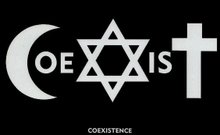A World Without Water Halts...
 "In an age when man has forgotten his origins and is blind to even his most essential needs for survival, water along with other resources has become the victim of his indifference."--Rachel Carson
"In an age when man has forgotten his origins and is blind to even his most essential needs for survival, water along with other resources has become the victim of his indifference."--Rachel Carson
A few weeks ago, a town nearby us, Toccoa, experienced some heavy rainfall and storms, which led to most of the water supply being contaminated or cut off from the town's residents for a few days. The local grocery stores ran out of bottled water, businesses and schools closed down, and people had to migrate to friend's houses in neighboring towns to take showers, use a toilet that flushed, and get some clean drinking water. The old saying is true. Sometimes you don't know what you have until it's gone. Since we are fortunate Americans, this loss of water was mostly a temporary inconvenience. But for those few days, seeing people experience what life without access to clean water is like--namely our world coming to a screeching halt--left quite an impression on me.
A couple of weeks later, I attended Rob Bell's speaking tour, Drops Like Stars (which will be the topic of a future post), where something very exciting was introduced to me. He informed his listeners to a unique non-profit organization called Charity Water . The founder, JahSun, a former entertainment networker, got bored with the life of luxury and frivolity. So, he decided to dedicate his life to improving the quality of lives of the "least of these" around the world. The brilliance of this organization is that 100 percent of donations go the ground work of providing clean water for the poorest people in the world. All overhead costs are funded through separate donations, mostly from the immensely wealthy entertainers he befriended in his former life. The JahSun has decided to use his "celebrity capital" to raise awareness to this issue and implement solid solutions. The second stroke of genius comes from how EASY they've made it donate to their efforts. They struck up a deal with all the major cell phone companies, in which all donaters have to do is text the word "WATER" to 20222. They will receive a text asking if they wish to have ten dollars added to their next cell phone bill and the donater just has to text back the word "Yes." It's that simple. Every 500 donations of 10 bucks ensures an entire village with long term access to clean water. This is such a small amount and such an easy way to help meet the vital basic need of access to clean water. Between all our blogs and facebook friends, if we all pitch in, we can collectively give entire villages clean water. So donate and pass it on!
Water Charity is a nonprofit corporation, directed toward improving the human rights and dignity of individuals throughout the world by providing them with resources that impact upon their health and wellbeing. With all donations applied to projects in the field, we have become one of the highest-ranked water charities delivering global services.
Water Charity at Lake Titikaka Water Charity implements practical solutions to provide safe water, effective sanitation, and meaningful health education to those in need.
Water Charity, in concert with key partners, surveys the needs, drafts the plans, assembles the resources, implements and manages the projects, and evaluates the results.
We plan for the long term and intermediate future, implement in the present, and react in the short term to crisis situations.
Our core group contains people with decades of experience in engineering, community development, construction, education, and public health. Led by Jacqueline Chan, Dr.P.H., Averill Strasser, and JahSun, we have completed many water and sanitation projects throughout the world in the past year, all on schedule and within budget.
"To donate $10 Dollars, simply text the word "Water" to 20222. When you receive the confirmation text asking if you want to have $10 dollars added to your next cell phone bill, text back the word "Yes." And you're done!"





 "God's Politics: Why The Right Gets It Wrong and The Left Doesn't Get It"
"God's Politics: Why The Right Gets It Wrong and The Left Doesn't Get It"














